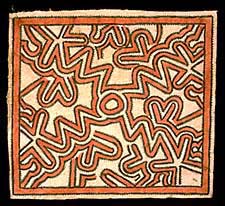
Photo credit: ©MICAD*
Over the past 15 years Melanesia, home to the largest remaining rainforests in the Asia-Pacific region, has been invaded by transnational timber companies, especially Malaysian corporations such as Rimbunan Hijau. If industrial logging continues at the current breakneck pace, there could be little or no forest left by 2010, according United Nations' Food and Agriculture Organization estimates.
 In Papua New Guinea (PNG), where indigenous communities own most of the
land, local people are under pressure from logging companies and the
government to sell off their forests. Many see access to formal education,
health care and technology as potential benefits of a cash economy. At the
same time, many want to retain control of their land and maintain their
culture.
In Papua New Guinea (PNG), where indigenous communities own most of the
land, local people are under pressure from logging companies and the
government to sell off their forests. Many see access to formal education,
health care and technology as potential benefits of a cash economy. At the
same time, many want to retain control of their land and maintain their
culture.
Several communities are resisting and coming up with alternatives to wholesale corporate logging and rainforest devastation. Among the leaders of this movement are the Maisin Tribe of the Collingwood Bay region of PNG. In 1993 the Maisin sent a delegation to meet with the Minister of Forests and the media, announcing their unequivocal opposition to industrial logging. They also pledged to protect their forests by developing their own local businesses that would serve the needs of the community.
As a first step, the community launched Maisin Tapa Enterprises to market, tapa paintings, a locally produced art form. Tapa cloth paintings are used in Maisin culture primarily as clothing, and ceremonial objects. They are also traded and saved as a form of wealth. Each design is unique. The profits from marketing these extraordinary bark paintings are distributed and reinvested in the community.
This image gallery tells the story of Maisin efforts to balance tradition with the cash economy, while preserving the lush and biologically diverse rainforest.
We thank the Maisin Integrated Conservation and Development Association, Reuben Sakai, John Wesley Vaso, Lafcadio Cortesi and Greenpeace and Aaron Igler and the Philadelphia Fabric Workshop Museum for all their help.
* This design is the property of the Maisin Integrated Conservation and Development Association (MICAD). Do not copy, alter or repost this design without explicit permission from MICAD.
For the whole story, and more examples of the Maisin paintings, visit Corpwatch Home Page